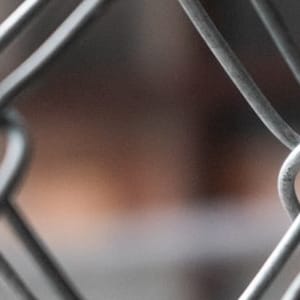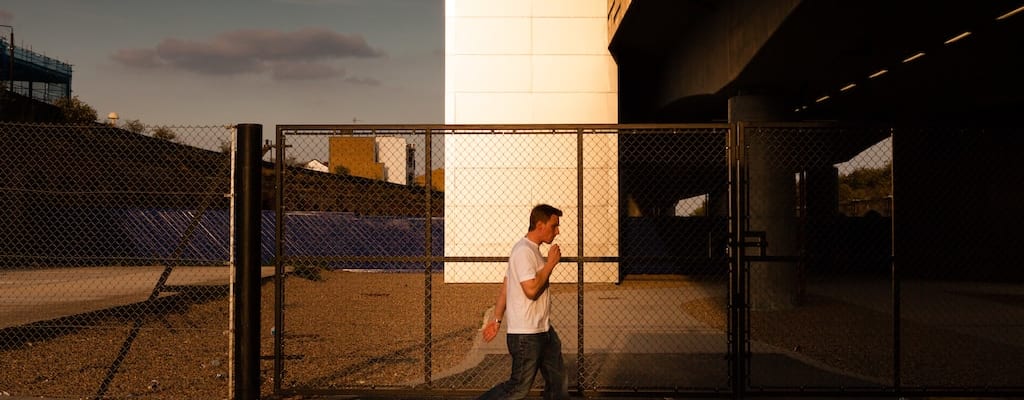fence in: Idiom Meaning and Origin
What does ‘fence in’ mean?
The idiom "fence in" means to enclose or confine someone or something within a limited space or boundaries, restricting their freedom or movement.

Idiom Explorer
The idiom "put someone in a box" means to restrict or limit someone's options or abilities, making them feel trapped or confined.
The idiom "keep watch" means to stay vigilant or be on the lookout for potential dangers or threats. It implies being aware and alert to ensure the safety or security of someone or something.
The idiom "keep the wolf from the door" means to have enough money or resources to provide for one's basic needs and avoid poverty or hunger.
The idiom "keep someone company" means to stay with or accompany someone in order to provide them with companionship or prevent them from feeling lonely.
The idiom "keep off the streets" means to stay indoors or avoid going outside, often because of dangerous or unsafe conditions on public roads or in the surrounding area.
The idiom "keep off the streets" is commonly used in American English. It can be interpreted literally or figuratively based on the context.
The idiom "keep a lid on" means to maintain control over something, especially to prevent it from becoming known or causing trouble.
The idiom "keep a close watch" means to closely monitor or observe something or someone, usually with the goal of ensuring their safety, security, or well-being.
The idiom "in the way" means obstructing or blocking the progress or movement of someone or something.
The idiom "in the dock" means to be on trial or facing judgment in a court of law. It is commonly used to describe someone who is accused of a crime or wrongdoing and has to defend themselves in a legal setting.
The idiom "in someone's pocket" means to be under someone's control or influence.
Unraveling the Mystery
The idiom "fence in" has several meanings and can be used in various contexts. It is commonly used in a literal sense to describe the action of enclosing an area with a fence or other barrier. This physical act of constructing a fence around a specific location serves practical purposes such as security or privacy. However, "fence in" can also be used figuratively to describe the act of creating boundaries or limitations around a person or group, restricting their freedom or movement.
The literal meaning of "fence in" is quite straightforward. It involves the physical construction of a fence around a particular area to enclose it. This can be seen in situations where individuals or property owners want to create a boundary or barrier between their land and the outside world. The fence serves as a means to protect and secure the enclosed space, keeping unwanted visitors or trespassers out. Additionally, it can also provide a sense of privacy for those inside the fence, shielding them from prying eyes.
The figurative meaning of "fence in" applies to situations where individuals or groups feel trapped or confined, often as a result of external pressures or expectations. This can manifest in different ways, such as being forced into a specific role or position that limits one's personal freedom or creativity. It can also refer to the experience of emotional or psychological limitations imposed by others, which can make individuals feel boxed in or restricted in expressing their true selves or pursuing their own desires.
Let's explore how the idioms "brick in" and "put someone in a box" relate to the concept of "fence in".
"Brick in" is an idiom that shares similarities with "fence in". It involves the act of enclosing or confining someone or something within a tight space. While "fence in" primarily refers to the use of fences or barriers, "brick in" emphasizes the idea of using bricks or wall-like structures to create a physical enclosure. This idiom can be used to describe situations where individuals or groups feel trapped, with limited options or opportunities for movement or growth. It conveys a sense of being hemmed in and unable to break free from the constraints placed upon oneself.
"Put someone in a box" is another idiom that aligns with the metaphorical meaning of "fence in". This expression suggests the act of categorizing or confining someone within a predefined set of expectations or limitations. It implies placing individuals in a restrictive framework or structure that may not align with their true desires or potential. Just as a fence creates boundaries around an area, putting someone in a box restricts their ability to explore outside of the predetermined confines.
While "fence in" describes both a literal and metaphorical action, the idioms "brick in" and "put someone in a box" further emphasize the concept of enclosure or confinement. These related idioms highlight the broad implications of creating boundaries and limitations, whether they be physical or abstract, and the impact they can have on individuals or groups.
The idiom "fence in" encompasses both a literal and metaphorical meaning. It is commonly used to describe the physical act of enclosing an area with a fence or barrier, as well as the figurative concept of creating boundaries or limitations around individuals or groups. The related idioms "brick in" and "put someone in a box" further illustrate the idea of enclosure and confinement. While the exact origin of the idiom "fence in" is uncertain, its use and understanding are widely recognized in various contexts. This idiom invites further exploration into the complex interplay between physical and metaphorical boundaries, and the ways in which they shape our experiences of confinement and freedom.
Example usage
The idiom "fence in" can be used in a variety of sentences to convey different meanings based on the context. Here are three examples:
1. The neighbors decided to fence in their backyard to provide more privacy.
2. The company wanted to fence in their property to secure it from trespassers.
3. The restrictions and regulations seemed to fence in the company's ability to innovate and grow.
More "Enclosure" idioms
We missed the mark - nothing found.

